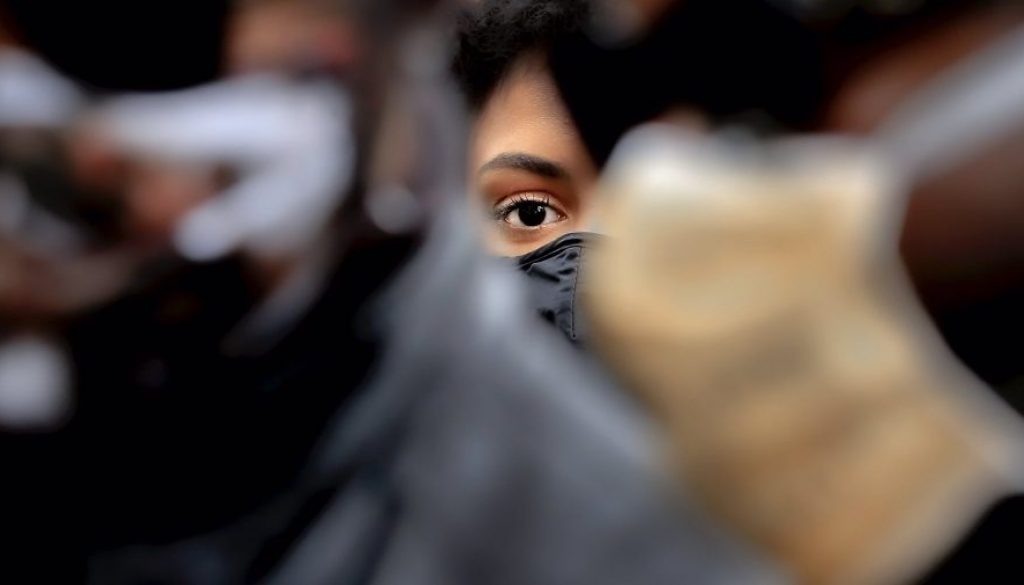Ireland: Black Lives Matter solidarity and other protests test lockdown restrictions
In early March, the Irish government set in place measures to stop the spread of COVID-19 including closing schools and asking all that could to work from home. A lockdown was announced on March 27 that restricted movement and banned events with limited exceptions. On May 5 and then June 8, travel and gathering restrictions were gradually eased. Of note was the removal of criminal sanctions for breaching the movement regulations.
Protests have garnered inconsistent responses from Garda Síochána, the police service in Ireland. On April 20, a group of 40 fishermen blocked foreign vessels from unloading in Kerry port due to fears of COVID-19. Significant police presence was on site, but they did not intervene. Protests by former Debenhams employees in Dublin on 21 April were told they were not allowed to protest during the pandemic, but had had their names and addresses, similarly to protesters in Cork on 29 April and in Dublin on May 15. A few days later the same protesters in Dublin were forced to leave. Gardaí preemptively blocked entrances to Dublin’s Phoenix Park after an anti-lockdown protest was organized by former presidential candidate Gemma O’Doherty, but allowed another anti-lockdown manifestation to happen in Mayo.
The largest challenge to lockdown measures has come from Black Lives Matter solidarity protests throughout the country. On June 1, between 1,000 and 5,000 people took part in a peaceful march in Dublin. Crowds wore face masks and placed placards outside the GPO on O’Connell Street and in front of the US Embassy. Gardaí took the details of some protesters saying that despite their attempts to respect social distancing guidelines, other potential breaches of COVID-19 regulations needed to be investigated and potentially prosecuted. Organizers canceled some of the protests planned, but insisted on holding the one planned for June 6. As of 15 June, nobody has been charged for planning or participating in a protest.
The Irish Council for Civil Liberties (ICCL), a member of INCLO, has raised its concerns over the criminalization of protest and issued a statement asking the government to review the exclusion of protests from the list of reasonable excuses to leave the house during COVID-19.

